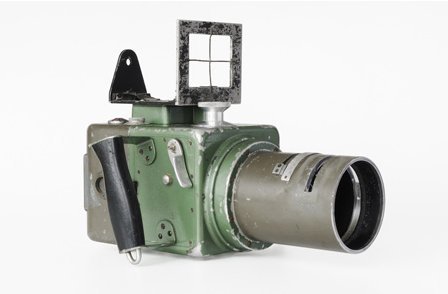Susanne Kriemann
dal 17/9/2009 al 20/11/2009
Segnalato da
17/9/2009
Susanne Kriemann
Uqbar - projectspace, Berlin
One Time One Million (Migratory Birds / Romantic Capitalism)

In her solo exhibition for uqbar, Susanne Kriemann (*born in Erlangen in 1972, lives in Berlin and Rotterdam) presents the artwork One Time One Million (Migratory Birds/Romantic Capitalism) (2009), which was first shown at the Stedelijk Museum Bureau Amsterdam and appears here in a new installation developed especially for the uqbar space.
The point of departure for the photography book and exhibition project is a Hasselblad aerial camera from 1942, which Susanne Kriemann employs as both a camera and a historic trigger to examine aspects of the history of photography and the notion of migration as well as their relationship to modernism’s utopia of city planning. This photographic journey through the twentieth century is divided into chapters with archival images and chapters with Kriemann’s own photographs. These shots are formally interconnected in their use of strategies of classical photography such as a bird’s-eye view or Rodtschenko’s familiar diagonal. The content of Kriemann’s project contrasts the romantic motif of migratory birds with the politically explosive topic of migration. In the vocabulary of tourism marketing, images of migratory birds—the nomads of the air—stand for the liberated mobility of globally active individualists, while the forced travel of migrant workers and refugees under economic or political pressure is commonly represented by imagery bearing associations of poverty, filth, and misery.
The photographic material from One Time One Million comprises historical shots taken with Hasselblad cameras as well as Internet images of swarms of birds and their various pictures taken by Victor Hasselblad. As the owner of Hasselblad Fotografiska AB, he was a successful businessman, and yet in his biographies he was romanticized as a passionate ornithologist, a pioneer of bird photography who published the photography book Migratory Bird Trails in 1935. Kriemann combines this archive material with the results of her photographic research on satellite cities near Stockholm that were part of the Swedish Million Program of 1960/70s. These residential areas stood for the belief in prosperity for everyone through rationalization and progress. Due to substandard construction and social isolation, they are today predominantly occupied by immigrants and refugees. In an idealizing manner reminiscent of the 60s and 70s, the aerial views portray an apparently democratic residential model. The close-ups, however, reveal the downside of the affluent society: The satellite dishes and concrete of the buildings’ façades and squares convey an anonymity that makes the people between them appear like lonely birds. Kriemann’s pictures of archival cabinets with stuffed birds in a natural history museum are able to create a metaphoric connection between boxlike architecture, ornithology, and migration.
As with numerous other works, Kriemann assembles historical and contemporary material into a non-chronological arrangement that allows for various new perspectives onto the apparently familiar situation. The installation at uqbar is made up of a shelf-like, rotated metal structure whose sheets of glass hold the pages of the photography book. This open structure is futuristic in its dynamic and invites the visitor to wander among the chapters, thereby emphasizing the nonlinear arrangement of the material as well as the potentially endless continuation of the story.
The exhibition has been supported by the European Cultural Foundation, the Fonds BKVB and the Embassy of the Kingdom of the Netherlands.
Works by Susanne Kriemann are currently on show in the exhibitons Berlin 89/09 – Kunst zwischen Spurensuche und Utopie, Berlinische Galerie and Anabasis – On the Rituals of Homecoming, Ludwik Grohman Villa, Book Art Museum, Lodz. For 2010/11 Susanne Kriemann has been appointed researcher of the Royal Academy of Fine Arts of the University College of Ghent. For more information see: http://www.susannekriemann.info
Opening Friday, September 18, 2009, 7 p.m.
uqbar
a project by Dorothee Bienert, Dortje Drechsel, Marina Sorbello, Antje Weitzel
Schwedenstr. 16 | D -13357 Berlin
Friday, Saturday, Sunday Wedding (27.9., 25.10.) 2-7 p.m. and by appointment
With friendly support by DEGEWO



